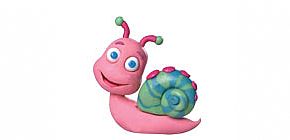Starting Solids? Discover the Foods Most Dangerous for Infants
.jpg) |
|
The Health Ministry recommends exposing infants to solid foods as of four months of life if formula fed and six months of life if nourished exclusively by breastfeeding. Proper exposure to solid foods not only helps ensure infants’ nutritional needs are met and formulate proper nutritional habits, but it also helps identify and treat food allergies. As such, the recommendation is to introduce new foods one at a time - a small amount each day for three days. If no allergic reaction surfaces, you can safely move on to the next food. For example, you can give a teaspoon of apple sauce a day for three days, after which you can add a teaspoon of pureed pears. Rapidly, the variety of foods your infant has tasted grows, and with time you’ll get to know their preferences. That being said, there are some foods you should avoid giving your infant, especially during their first year of life.
Dairy products: The Health Ministry recommends completely avoiding dairy products until 9 months of age and cow’s milk until your infant’s first birthday, as dairy products can interfere with iron absorption and cause a nutritional deficit. During the first year, it is recommended to serve white dairy products only, such as spreadable white cheese and yogurt, and avoid dairy products containing sugar and food coloring.
Honey: The Health Ministry recommends avoiding honey and foods containing or cooked/baked with honey before one year of age, due to the risk of botulism, which can cause muscle paralysis (like its relative, botox). The grown up digestive system contains higher levels of acidity, preventing botulism from affecting the body unless they are sick or have lowered digestive system function. This is not the case for infants.
Sugar: Sugar can be found in sweetened drinks, cakes, yogurts, puddings and other processed foods, causing a rapid surge of blood glucose levels, which infant bodies have difficulty coping with, leading to a “sugar crash.” Sugar is also harmful for teeth and causes a preference for sweet treats. As such, it is recommended to avoid foods that contain refined sugars, and offer fruits or other unsweetened foods. This recommendation applies to people of all ages.
Food coloring: Food coloring is unhealthy for the body and some have even been declared dangerous, including those made from leftover crude oil or tar, such as yellow (Tartrazine), orange (Sunset Yellow), red (Allura) and blue (Indigo Carmine and Blue Number 1). Food coloring does not break down in the body; it builds up and can potentially cause severe illnesses, tumors and attention disorders. In most European countries, the use of these colors are banned, but in Israel and the U.S., they continue to be used. Young children, especially infants, are more sensitive to the effects of food coloring, as their body surface is smaller. As such, it is recommended to completely avoid them in the first year of life, and limit exposure to them later on as well.
Trans fats: This source of fat is a natural fat that underwent a chemical process to transform it from a liquid to a solid, like margarine. This fat does not break down in the body, but rather builds up along the sides of the arteries and other internal organs and has been proven to contribute to the onset of cardiovascular disease. Recently, the use of trans fats was made illegal in the U.S. Trans fats tend to be found in industrial baked goods, frozen foods, ice cream, junk food, spreads and others. They should be avoided at every age.
Preservatives: to lengthen the shelf-life of commercial foods and prevent the development of bacteria, preservatives are often added to their recipes, identifiable by the letter E and the addition of a number between 200-299. These substances are not healthy and in high concentrations can cause asthma attacks, headaches, attention disorders and more. They tend to appear in fresh items stored in refrigerators, such as dairy products, hot dogs, hummus and more. It is recommended to consume minimal amounts of preservatives, but eating a minimal amount of processed foods.
Salt: Salt contains a large amount of sodium, which raises the risk of high blood pressure and dehydration in infants. According to the Health Ministry, adults should consume no more than six grams of salt per day, but remember that salt appears in a wide variety of industrialized foods, even before they hit your plate. Salt can disrupt the balance of minerals in infants’ bodies, and so it should be avoided in pure form, as well as in processed foods. It is recommended to serve homemade foods that are fresh and healthy.
What is recommended to offer infants during the tasting stage?
It is recommended to give many tastings of fresh and cooked fruits and vegetables, as well as legumes, portions of complex carbohydrates such as whole grain rice, pasta and break, meat, chicken, fish and eggs. Infant meals should be accompanied by healthy fats such as tahini, avocado and olive oil. In addition, adhere to the Health Ministry’s recommendations and give your infant iron drops. Note that some drops are formulated uniquely to be able to administer them with milk (breastmilk or formula)!
Have you ever heard of an infant massage course? You likely have; they’re everywhere. This is because infant massage responds to a broad physical ...
During their first year of life, infants experience extremely fast-paced development. Within just a few months, they develop exceptional motor and ...
Summer vacation is over. There is no single parent who won’t admit to feel some relief when their children head back to school. You won’t need to ...


.jpg)
.jpg)
.jpg)
.jpg)



.jpg)
.jpg)
.jpg)
.jpg)

.jpg)



.jpg)
.jpg)
Contact us